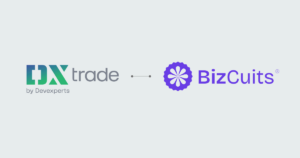Crypto derivatives industry expects more pain, regulation, banks on DeFi – Acuiti report
More near term pain is expected, but a key takeaway from the report was long-term optimism about the market’s prospects.

Acuiti, a provider of market intelligence for the global derivatives market, has released the Acuiti Crypto Derivatives Managers’ Insight Report, a quarterly report based on a survey of the Acuiti Crypto Derivatives Expert Network of senior executives operating within crypto derivatives markets.
One of the key highlights in this quarter’s report is that the majority of respondents expect cryptocurrencies to drive a more severe approach to the asset class from regulators this year.
In addition, the report’s findings show that expectations of further consolidation are high — among crypto exchanges but also lenders and other crypto services providers.
More near term pain is expected, but a key takeaway from the report was long-term optimism about the market’s prospects.
Ross Lancaster, Head of Research at Acuiti, said: “Our latest Insight report shows that regulation, while long courted by the cryptocurrency industry, is expected to take a more severe form than was anticipated prior to the recent price falls. Some crypto derivatives users have a head start in this respect as these instruments already fall under financial frameworks. But nonetheless, the industry is about to undergo a period of profound change.”
The Q3 Acuiti Crypto Derivatives Managers’ Insight Report’s key findings were:
- 59% of the network expect a more severe regulatory approach will be the main medium to long term effect of recent falls in crypto prices
- 50% of the network think the main consequence will be the market moving closer to Trad Fi infrastructure
- 58% of the network believe that banks will come to play a significant role in permissioned De Fi
- 84% of the network believe Bitcoin will rise back above $65,000, but opinion ranges on how long it will take to do this
- The accelerating pace of regulation will be one driver of an increasing convergence between Trad Fi and De Fi. Banks are expected to play an increasingly pivotal role in crypto markets in the future once regulation is established.
86% banks and brokers manage risk with more than one system
A recent Acuiti study, conducted in partnership with Sterling Trading Tech, concluded that sell-side risk management is in need of an overhaul that consolidates systems and incorporates the increased importance of margin into risk calculations.
Acuiti surveyed participants from 55 banks and broker-dealers across the world and found that 86% of respondents use more than one system to manage risk across their derivatives business.
Regulatory and market pressure is growing to monitor risk and margin on a real time basis, while fragmented legacy risk systems are hampering firms’ ability to respond to increased volatility across global markets.
Market volatility is forcing market makers to be more vigilant about collecting margin calls and upgrading the existing infrastructure.
Real time risk management has become essential for managing counterparty exposure, but legacy systems often lag these demands, the report continued, adding that existing infrastructure has often become so embedded in firms that even if they want to overhaul it, the operational challenges are too big.









